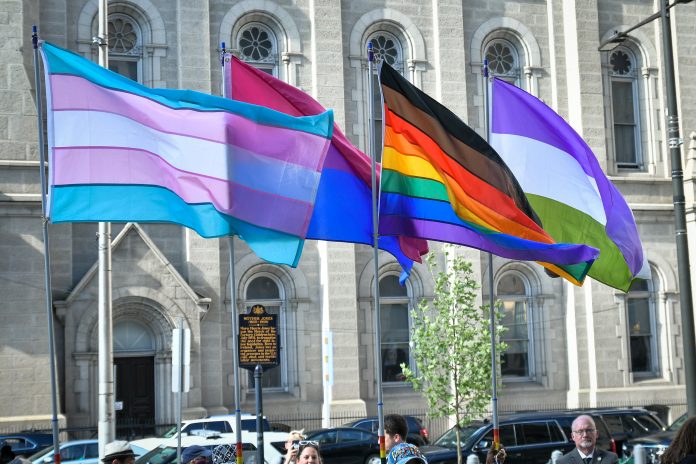Late last month, NFL veteran, Ryan Russell, came out as bisexual. The former Dallas Cowboy and Tampa Bay Buccaneer told CNN, “Once I finally felt ready to come out and felt ready to express who I was, I just felt a weight lifted. I became a better brother. I became a better son. I believe I’ll be a better teammate.”
Russell’s coming out is important to many in the bisexual community — a demographic up against erasure, hypersexualization, misrepresentation, misunderstanding and, of course, biphobia.
This year, The Trevor Project published, “Research Brief: Bisexual Youth Experience,” which analyzed data from the 2015-17 Center for Disease Control and Prevention’s Youth Risk Behavior Survey. It found 7 percent of youth identify as bisexual, compared to 2 percent as gay or lesbian and 4 percent as questioning.
The report noted that 66 percent of bisexual youth felt sad or hopeless for two or more weeks in a row over the course of 12 months compared to 49 percent of those who identify as gay or lesbian and 27 percent of those who identify as heterosexual. Further, the report found that 21 percent of bisexual youth reported having been forced to have sexual intercourse, compared to 16 percent of those identifying as lesbian and gay and 5 percent of those who identify as straight.
An Australian study from researchers at La Trobe University in Melbourne looked at bisexual people’s mental health, trying to determine why the group faces greater mental health challenges than their lesbian and gay counterparts.
In a survey comprised of 2,651 adults characterized as having “bisexual attraction, identity or experience,” results showed high levels of internalized biphobia, being in a heterosexual relationship and having a less supportive partner “significantly” increased psychological stress.
Almost half of those surveyed thought about committing suicide in the past two years and more than 25 percent had attempted suicide at some point. The most commonly reported mental health conditions in the survey were depression, anxiety, eating disorders and PTSD.
What’s compelling about the Australian study is that those women in same-sex relationships fared better emotionally than those with a male partner, challenging the belief that bisexual people in heterosexual relationships benefit mentally from “heterosexual privilege.” This does not mean that same-sex partners are inherently better than different-sex partners. But same-sex partners in the study proved to be more supportive of their bisexual partners, which was the most substantial determinant of mental health.
While it’s certainly known that bisexual folks are stigmatized within the LGBTQ community and outside of it, it’s upsetting to see that something as simple as support “significantly” improves the mental health of a bisexual person, when support (and validation and acceptance) should be a given in any interpersonal relationship.
